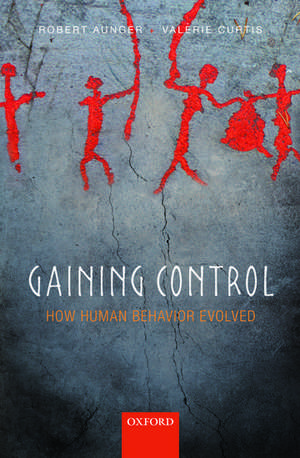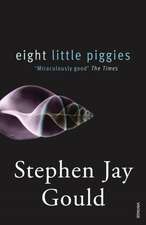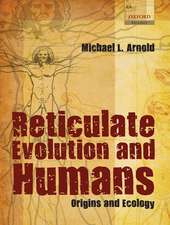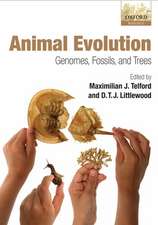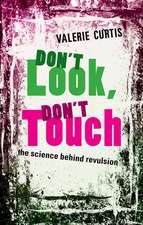Gaining Control: How human behavior evolved
Autor Robert Aunger, Valerie Curtisen Limba Engleză Hardback – 26 mar 2015
Preț: 357.25 lei
Preț vechi: 492.91 lei
-28% Nou
Puncte Express: 536
Preț estimativ în valută:
68.37€ • 70.97$ • 57.01£
68.37€ • 70.97$ • 57.01£
Carte tipărită la comandă
Livrare economică 11-17 martie
Preluare comenzi: 021 569.72.76
Specificații
ISBN-13: 9780199688951
ISBN-10: 0199688958
Pagini: 176
Dimensiuni: 163 x 240 x 16 mm
Greutate: 0.42 kg
Editura: OUP OXFORD
Colecția OUP Oxford
Locul publicării:Oxford, United Kingdom
ISBN-10: 0199688958
Pagini: 176
Dimensiuni: 163 x 240 x 16 mm
Greutate: 0.42 kg
Editura: OUP OXFORD
Colecția OUP Oxford
Locul publicării:Oxford, United Kingdom
Recenzii
One of the interesting aspects of this book is the way in which the authors define emotions not by the feelings that accompany them but by their behavioural purposes
Notă biografică
Robert Aunger is Senior Lecturer in Evolutionary Public Health at the London School of Hygiene and Tropical Medicine. He has a PhD in biological anthropology from the University of California, Los Angeles, and did post-doctoral work in psychology at the University of Chicago and King's College, Cambridge. He has published books on topics such as cultural evolution (with the Free Press and Oxford University Press), the evolution of behaviour (with Oxford University Press), and ethnographic methods (with Altamira Press). At LSHTM, he has been involved in health promotion, particularly the psychology of behaviour change, and developed tools for conducting formative research. He has implemented this work in projects in both Africa and Asia. He has also consulted for the World Bank, UNICEF, Unilever and Procter and Gamble.Dr Val Curtis is Reader in Hygiene at the London School of Hygiene and Tropical Medicine and Director of the Hygiene Centre. Trained as an engineer, epidemiologist and anthropologist, her research centres around sanitation and hygiene, in particular on the design of interventions to improve behaviour. She is co-founder of the Global Public-Private Partnership for Handwashing with Soap, which unites the marketing abilities of the private sector with the reach of the public sector and the science of academia in large-scale national handwashing programmes. She teaches and consults on behaviour change with governments, international organisations and industry. She has published widely on hygiene, behaviour and disgust and her book: Don't Look Don't Touch, the Science behind Revulsion came out with OUP in September 2013.
